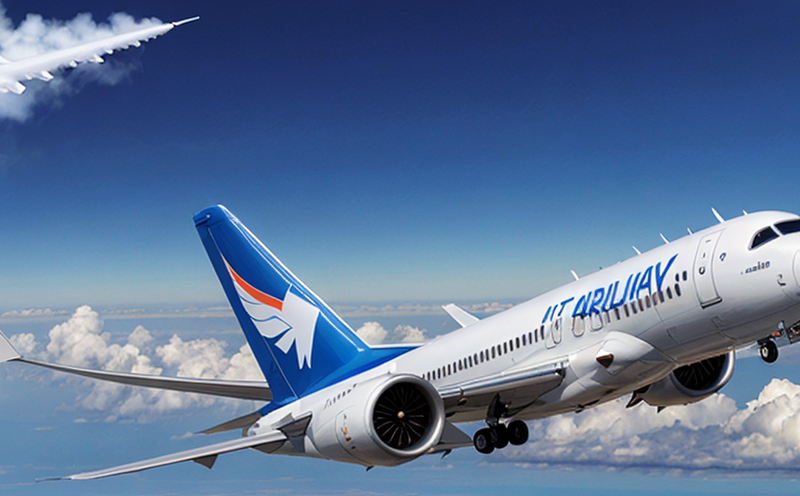RTCA DO-254 Hardware-Software Integration Testing
The RTCA DO-254 standard is a crucial framework for the development and validation of avionics hardware and software in aerospace systems. This service focuses on ensuring that the integration between hardware and software components meets stringent safety, reliability, and functionality requirements as per RTCA DO-254 guidelines.
The primary goal of this testing process is to ensure that all electronic systems in an aircraft are developed with a clear understanding of their functional requirements from the outset. This includes identifying potential risks early on, through rigorous analysis and verification methods, before components are integrated into the larger system. By adhering strictly to RTCA DO-254 specifications, our laboratory ensures that every aspect of hardware-software interaction is thoroughly validated.
Our approach begins with a detailed review of your proposed design, ensuring it aligns not only with RTCA DO-254 standards but also meets all relevant international standards like ISO and IEC. We then proceed to conduct comprehensive testing across various stages, including initial concept validation through final assembly checks. Throughout this process, we utilize state-of-the-art equipment and methodologies that are specifically tailored for aerospace applications.
The importance of RTCA DO-254 cannot be overstated; it serves as a critical tool in reducing the risk of failures due to integration issues between hardware and software elements within complex avionics systems. By providing independent verification and validation services, we help our clients achieve higher confidence levels regarding their products' compliance with safety regulations.
Our comprehensive suite of testing capabilities includes but is not limited to static analysis tools for identifying potential defects early in the design phase; dynamic simulation environments where both hardware and software can be tested under realistic operational conditions; and robust fault injection techniques aimed at uncovering any latent bugs or weaknesses before deployment. Each test scenario is designed meticulously taking into account real-world flight profiles, environmental factors, and other critical variables that could affect performance.
Through our expertise in RTCA DO-254 hardware-software integration testing, we enable companies to develop safe, reliable, and efficient avionics systems compliant with industry best practices. This ensures not only regulatory compliance but also enhances product quality and customer satisfaction.
Why It Matters
The importance of RTCA DO-254 hardware-software integration testing cannot be overstated, especially given the complexity and critical nature of modern aerospace systems. The integration between avionics hardware and software is a complex process that requires careful planning, execution, and validation throughout each stage of development.
- Compliance with Standards: Ensures adherence to internationally recognized standards like RTCA DO-254, ISO/IEC 17025, and others relevant in the aerospace industry.
- Risk Management: Identifies potential risks early on through rigorous analysis and verification methods before components are integrated into the larger system.
- Safety Assurance: Provides independent verification to ensure all electronic systems comply with stringent safety requirements, thereby enhancing overall product reliability.
- Quality Control: Helps manufacturers maintain high standards of quality by providing detailed reports on test results which can be used for continuous improvement processes.
In summary, RTCA DO-254 hardware-software integration testing is essential because it helps prevent costly mistakes and ensures that the final product meets all necessary safety, reliability, and functionality criteria. This not only protects the manufacturer from potential liabilities but also enhances public trust in aerospace technologies.
Scope and Methodology
| Test Stage | Description |
|---|---|
| Concept Review | Involves reviewing the design concept against RTCA DO-254 requirements to ensure that all functional requirements are clearly defined. |
| Design Analysis | This phase focuses on identifying potential risks early in the development process through detailed analysis using various tools and techniques. |
| Static Testing | Conducts thorough inspections of hardware and software components without executing them, ensuring there are no obvious errors or issues that could lead to failures during operation. |
| Detailed Integration Testing | This involves integrating the hardware and software components into a functional system where they can be tested together under realistic operational conditions. This helps identify any integration issues early in the process. |
| Final Assembly Checks | The last step ensures that all components are correctly assembled and integrated, meeting all specified performance criteria before being approved for use. |
The scope of our RTCA DO-254 hardware-software integration testing covers the entire lifecycle of avionics development from initial concept through final assembly. Our methodology follows a structured approach that ensures thoroughness and consistency in every aspect of the process, adhering strictly to RTCA DO-254 standards while also considering other relevant international standards like ISO/IEC 17025.
Throughout this comprehensive testing regime, we employ state-of-the-art equipment and methodologies specifically designed for aerospace applications. This allows us to simulate real-world flight profiles accurately, exposing any latent bugs or weaknesses that might go undetected during earlier stages of development. By doing so, we help our clients achieve higher confidence levels regarding their products' compliance with safety regulations.
Competitive Advantage and Market Impact
- Compliance Leadership: Our proficiency in RTCA DO-254 standards enables us to provide unparalleled support for meeting regulatory requirements, giving our clients a significant edge over competitors who may struggle with these complex guidelines.
- Risk Mitigation: By identifying potential risks early on through rigorous analysis and verification methods, we help mitigate costly mistakes that could arise if discovered later in the development cycle or after deployment.
- Innovation Support: Our expertise allows us to support innovative avionics technologies while ensuring they meet all necessary safety, reliability, and functionality criteria. This encourages continuous innovation within the aerospace sector.
- Reputation Building: Providing reliable, high-quality testing services builds a strong reputation among clients in the industry, fostering long-term relationships based on trust and excellence.
In an increasingly competitive market, being able to demonstrate compliance with stringent standards like RTCA DO-254 can make all the difference. Our commitment to quality ensures that our clients' products stand out as safe, reliable, and innovative solutions in a crowded marketplace.





